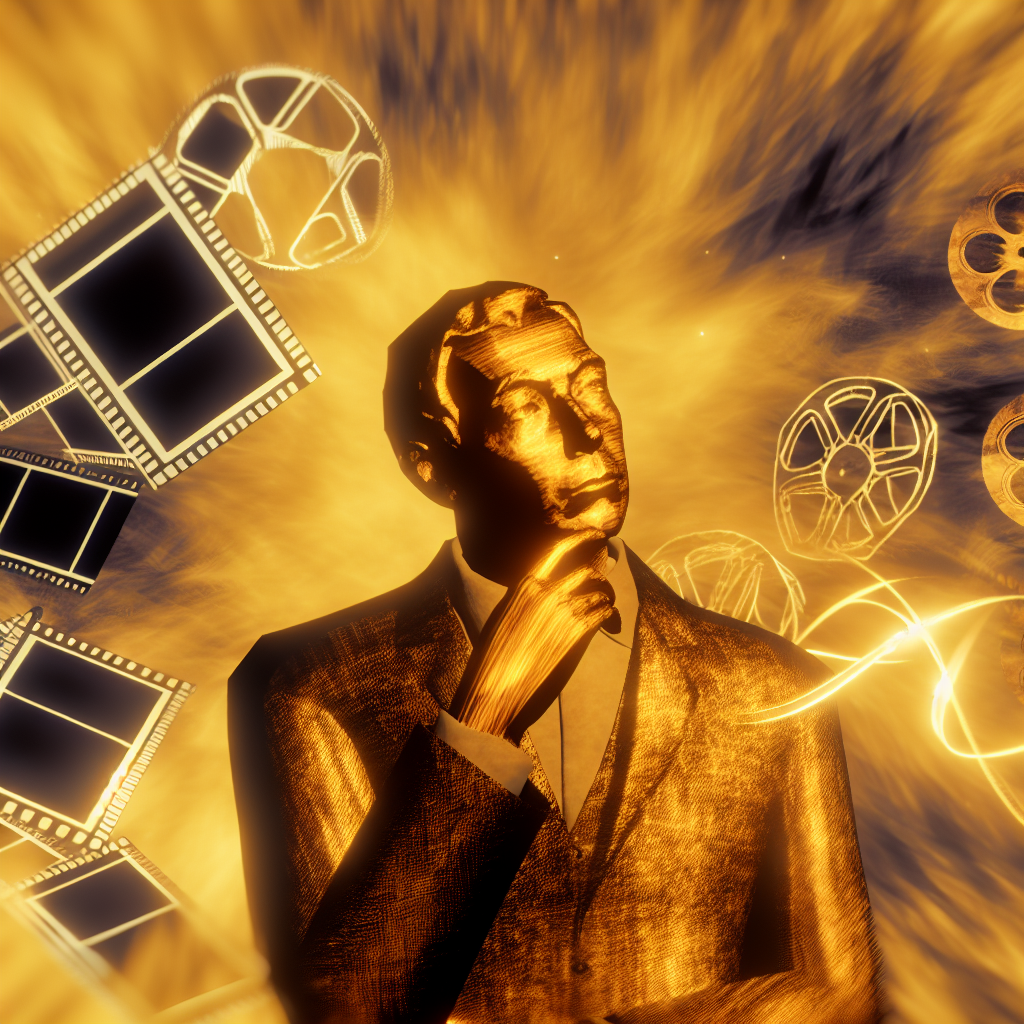
“`html
“`
Werner Herzog Speaks on Artificial Intelligence Creativity
Renowned filmmaker Werner Herzog, known for his deep understanding of human nature and the boundaries of innovation, has sparked a new wave of debate regarding artificial intelligence creativity. Herzog’s unique perspective challenges us to examine the possibilities and limitations of machines in the creative process—marking another milestone in the ever-expanding discourse on AI’s potential to redefine human expression.
What Does Artificial Intelligence Creativity Mean?
At its core, artificial intelligence creativity refers to the ability of AI to produce novel and meaningful content, which includes art, music, literature, and even filmmaking. Whether it’s algorithms sketching digital art or machine learning systems writing poetry, we are increasingly witnessing AI push the boundaries of imagination, prompting us to redefine what “creativity” means in the context of technology.
This phrase is no longer just a concept for futuristic discussions—it has materialized in real-world applications. With tools like OpenAI’s DALL-E generating stunning visuals and ChatGPT crafting engaging narratives, AI is fostering a new realm of creative possibilities.
Werner Herzog’s Insights: A Blend of Awe and Skepticism
While Herzog admires the powerful capabilities of AI, he remains cautious. In interviews, the filmmaker has expressed how the progress of artificial intelligence excites as well as unnerves him. The critical question for Herzog is: Can machines truly emulate the depth of human emotion in creative pursuits, or are they only mimicking human creativity without an inherent soul?
Herzog’s reflections on artificial intelligence creativity pose thought-provoking questions:
- Is AI creating something inherently new, or merely remixing existing data?
- Can artificial intelligence understand context, nuance, and the human condition?
- Should we consider machine-generated content as art in the same way we value human creations?
The Humanizing Factor in Creativity
Herzog, a champion of human storytelling, maintains that emotion and personal experience are fundamental to creativity. He questions whether AI, devoid of consciousness and subjective understanding, can truly grasp the depth of the human condition. According to Herzog, creativity is as much about the process as it is about the outcome, and whether AI can internalize such complexity remains an open question.
Examples of AI in Creative Fields
The impact of AI on creative industries illuminates both the possibilities and controversies surrounding artificial intelligence creativity. Below are a few examples of how AI is shaping these fields today:
- AI-powered platforms like Jasper AI are changing the way content is written, helping marketers and writers speed up their creative workflows.
- DeepArt.io’s algorithms create paintings inspired by classic art styles, showcasing AI’s ability to reimagine visual art.
- AI-based tools, such as AIVA (Artificial Intelligence Virtual Artist), compose original music used in commercials, video games, and movies.
- OpenAI’s Codex, the AI behind GitHub Copilot, is empowering developers with creative suggestions when writing programming codes.
These examples prompt us to ask: Are we witnessing the rise of genuinely creative AI, or is its output a sophisticated replication of what humans have already done?
Challenges and Ethical Considerations
As we delve deeper into the world of artificial intelligence creativity, ethical questions arise:
- Who owns the copyright to AI-generated works?
- Should algorithms be recognized as artists, or should credit always be attributed to their human developers?
- How do we ensure AI does not unknowingly perpetuate biases or unethical content?
Herzog’s concerns align with those of experts who warn about the potential misuse of AI-powered tools in spreading misinformation. In a world increasingly governed by algorithms, the ethical boundaries surrounding AI creativity carry profound implications for society.
Balancing Human and AI Creativity
To address these challenges, industries must aim for collaboration, rather than replacement. Herzog suggests finding a balance where AI serves as a tool for amplifying human creativity, rather than overshadowing it. When implemented responsibly, AI can act as a partner to creators, taking care of technical or repetitive tasks while leaving the essence of storytelling to humans.
The Future of Creative AI: Opportunity or Threat?
Herzog’s musings raise an essential question about the future: Will the rise of artificial intelligence creativity enhance or diminish human creativity? This conflict boils down to how we choose to utilize AI as a tool.
Advancements in AI suggest that machines will soon possess the ability to emulate even more human-like creative processes. But for Herzog, the heart of creativity lies not in replicating the human mind, but in probing life’s deepest mysteries—a trait he argues cannot be programmed.
Embracing Creativity Without Losing Humanity
For humanity to prosper in this age of innovation, Herzog believes we must uphold the values that set human creativity apart: empathy, storytelling, and emotional connection. By fostering a balance between human ingenuity and machine intelligence, we can ensure that artificial intelligence creativity remains a collaborative force, rather than a competitor.
Conclusion
Werner Herzog’s reflections provide a valuable lens through which to view emerging trends in artificial intelligence creativity. Whether we choose to see AI as a mere tool or a creative powerhouse, its role in shaping the future is undeniable.
As the line between human and artificial creativity continues to blur, we must tread carefully, ensuring technology complements rather than overshadows human creativity. Herzog’s words serve as a powerful reminder that although AI may one day approach the boundaries of imagination, the human soul remains the ultimate source of creativity.
Relevant Internal Links
- AI in Art and Design
- Generative AI Tools
- Future of AI Creativity
- Cultural Impact of AI
- AI and Storytelling Innovation
External Links
- Forbes: The Role of AI in Digital Art
- The Guardian: AI Creativity and Its Artistic Potential
- MIT Technology Review: How AI is Changing Creative Industries
- BBC: Can AI Be Truly Creative?
- National Geographic: Redefining Creativity Through AI
- Wired: The Infinite Potentials of AI Creativity
- Harvard Business Review: Creativity in the Age of AI
- Oxford Academic: AI and Creativity
- The Verge: AI Creativity – Advantages and Disadvantages
- Adobe: AI and Creativity
“`
